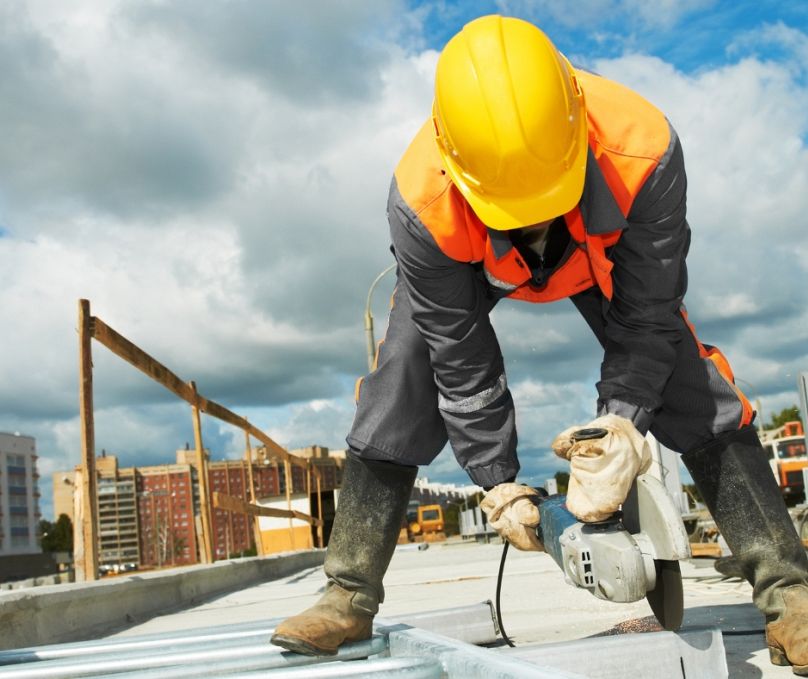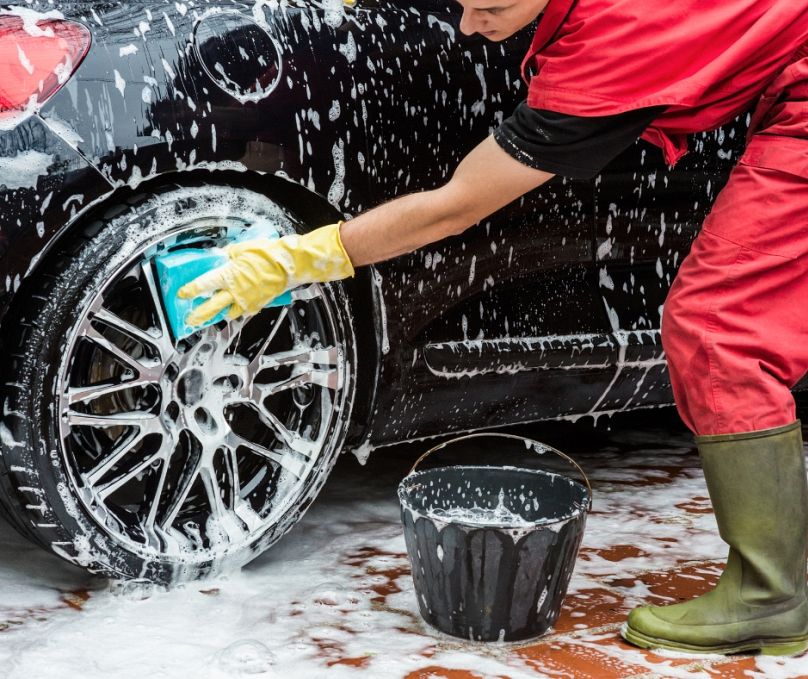Figures show only 29% of organisations are submitting a modern slavery statement as required by law.
In “pop-up brothels”, car washes, nail bars and countless other types of businesses, slavery is running rampant in the UK, often in plain sight of wider society.
 ADVERTISEMENT
ADVERTISEMENT
 ADVERTISEMENT
ADVERTISEMENT
Government estimates put the number of victims at 10,000 in 2020, though Anti-Slavery International claims the real figure is ten times higher – more than 130,000 people.
“Slavery is one of those things that many people believe happens elsewhere or to other people, that it doesn't affect them in any way, shape or form,” said Justine Carter, Director of the anti-slavery organisation Unseen.
But this couldn't be further from the truth, she continued.
“We are all touched by slavery in some way or another. Whether that's a decision we make about the work we pay for, the food we eat or the clothes we wear. We're all affected – and can affect – this situation.”
‘It can happen to anybody’
Slavery is meted out in so many different ways, be it forced labour, sexual, criminal and financial exploitation or domestic servitude.
In the simplest terms, it occurs when someone – often in a vulnerable position – is exploited and abused by another, usually for money.
Age, immigration status, addiction, physical and mental health or ability can all put people at risk. However, Kate Roberts from the NGO Focus on Labour Exploitation told Euronews: “It's really important to recognise that there’s no fixed profile of what a victim looks like because then exploitation which is less expected can be missed.”
“Historically, some victims, such as a man working on a building site, might not have been easily identified because of stereotypes. So it's important to go on actual indicators: Are people being paid enough? Are they respected at work? What security do they have?”
A myriad of often overlapping factors push people into the hands of exploiters, though the cost of living crisis has turbocharged the problem in recent months.
“We're seeing more and more people on the edge because they don't have the kind of income they once had,” said Carter. “They might turn to something they ordinarily wouldn't do as they become desperate.”
Over a third of families will be unable to afford the cost of essentials like putting food on the table or replacing their clothes by April 2024, according to analysis by the New Economics Foundation.
‘Pushed into the underbelly’
While the cost of living crisis is an external issue, fuelled by global crises like the Ukraine war and climate change, government policy is also seen as allowing slavery to thrive.
According to Roberts, “proper labour regulations aren't being enforced” and the public bodies designed to oversee them are “massively under-resourced”, giving unscrupulous companies a free hand to exploit others without being held to account.
The 2015 Modern Slavery Act puts an obligation on companies to check for exploitation in their supply chains.
Yet, the Chartered Institute of Procurement and Supply (Cips) found efforts to tackle the problem are stalling, with only 29% of organisations submitting a modern slavery statement as required.
“It's in no one's interest if labour standards are not enforced,” said Roberts. “Obviously, it's really bad for the people who are being exploited, but it's actually very bad for decent employers who are undercut.”
“It affects everyone in a job if we end up with large sectors of the population who are not having their rights enforced,” she added.
A Home Office spokesperson previously called modern slavery a “barbaric crime” and said the government was “committed to stamping it out”.
Although British nationals fall victim to slavery, Carter says people who recently arrived in the country are “ripe for exploitation”, especially if they came through illicit means or have insecure immigration status.
Farm workers travelling thousands of miles to plug labour shortages on UK farms have faced illegal wage deductions, with some paid as little as £16 a day, according to research by the Bureau Of Investigative Journalism and Vice World.
The minimum hourly wage is £10.42, as of April (€11.87 per hour).
Part of the problem is the “culture of fear” created by the Conservative Party’s “hostile environment” policy towards immigrants, which stops people from speaking out about poor working conditions or accessing their rights, says Roberts.
Announced in 2012, “hostile environment” refers to a set of measures – based on the principle of 'deport first, appeal later' – designed to make life as difficult as possible for individuals without proper paperwork.
It has been widely condemned as ineffective and inhumane.
“All we’ve done is give more power to exploiters by driving people underground,” Roberts told Euronews. “What we need to be doing is creating an environment where victims can come forward.”
And she believed the upcoming ‘Illegal Migration Bill’, which seeks to remove people who arrive in the UK illegally, would only make things worse.
“Exploiters will be able to threaten people not to speak out, warning them that if they go to the authorities they could be detained indefinitely or removed to Rwanda.”
‘We need to prevent it'
Prevention is widely seen as vital to stopping exploitation before it becomes full-blown slavery.
“The impact is horrendous,” says Carter, who works with traumatised victims on a regular basis. “Some people, particularly if it's been a long period of time, may never recover.”
Slavery or trafficking can involve continuous coercion and control that has a devastating psychological and mental impact. Violence or the threat of is often involved.
Besides human suffering, there is a considerable economic impact.
Government estimates put the annual cost of modern slavery to the UK economy at £3.3bn to £4.3bn (€3.76 to €3.87 billion). This is based on its assessment of 10,000 to 13,000 victims.
However, anti-slavery organisation Unseen suggests the genuine cost could be closer to £40bn (€45.56 billion) if what they say is the real number of people in slavery is taken into account.
“Quite often slavery is hiding in plain sight,” says Carter. “When people get the feeling that something is not quite right or looks a bit odd, they usually brush it off and think it's not their problem.
“What we have to do is get into the minds of the public if it doesn't feel right. It probably isn't,” she added.
If you have been affected by slavery or feel someone else is at risk call Unseen on 08000 121 700. The Helpline is free, open 24/7, 365 days a year and is not only there for potential victims of modern slavery. They also provide support and information to services like the police and NHS, businesses, other charities and members of the public who are concerned about something they’ve seen.












